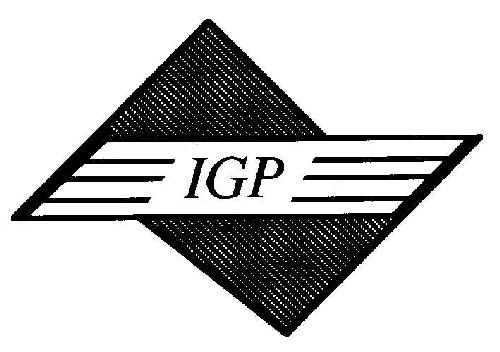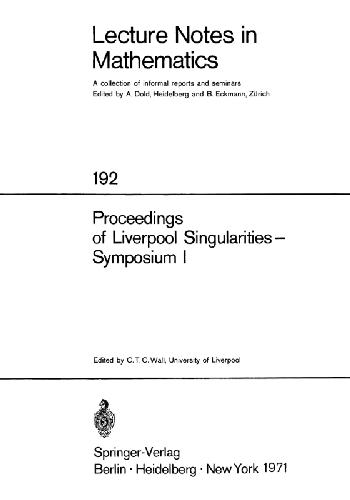Information Resources Management Associa9781599049304, 1-59904-930-9
Table of contents :
MANAGING WORLDWIDE OPERATIONS AND COMMUNICATIONS WITH INFORMATION TECHNOLOGY……Page 1
Copyright Page……Page 2
Table of Contents……Page 3
Reducing the Size of Auxiliary Data
Needed to Support Materialized View
Maintenance in a Data Warehouse
Environment……Page 14
Diagnosing the Context of
Inter-Organizational Systems by
Mapping Key-Players……Page 18
Teaching Java™: Managing Instructional
Tactics to Optimize Student Learning……Page 22
Supporting Interorganizational Processes
with Interaction Flows and Business Rules……Page 26
Transforming Procurement in the
UK Immigration Directorate……Page 30
Multi-Grounded Development of
Enterprise Modeling Methods:
The Case of SIMM……Page 35
Evaluating Complexities in Software
Configuration Management……Page 40
Towards Augmenting Human Affordance
in Evaluation of Agreement/Disagreement
Phrases……Page 44
A Multi-Agent System for the Remote
Control of Data Servers……Page 49
The Effect of Hidden Units in Neural
Networks on Identifying Data Duplication
Records……Page 53
Perceived Service Quality, Relationship
Quality, and IT Outsourcing Success in
Malaysian Organizations……Page 57
Time for Reflection: Going Back to
Autopoiesis to Understand Knowledge
Management……Page 62
Knowledge Losses in the Capturing
Process……Page 66
Towards Measuring the Complexity of
Information Systems:
A Language-Critique Approach……Page 70
A Research-Driven View of Conceptual
Models as Instruments for Information
Systems Research……Page 74
Enterprise Architecture Using the
Zachman Framework: A Model Driven
Approach……Page 78
The Impact of Australian Legislation
Upon an IT Degree: Considerations and
Response……Page 83
Improving Class Participation by
Asian Students……Page 87
Learning Objects and Semantic Web in
Education: From Students’ Analysis to
New Perspectives for Their Use……Page 91
Measuring the Success of ICT-Based
Knowledge Transfer: A Preliminary Study……Page 95
Multi-Layer Decision Support Model
Value and Cost Analysis of IT Solutions:
Hierarchical Approach……Page 99
The Adoption and Implementation of
Knowledge Management in Healthcare
Operations……Page 104
Aspects of Knowledge Transfer in
eXtreme Programming……Page 108
Adapting Supervised Feature Selection
Methods for Clustering Tasks……Page 112
An Integrative Framework for Achieving
HIPAA-Compliance for Healthcare
Information Systems……Page 116
Distribution-Collaboration Networks
(DCN): An Organizational
Transformation Perspective on the
Development of E-Government Services……Page 119
Design of Reputation Systems in Online
Auction Marketplaces: A Comparative
Market Study……Page 124
On the Determinants of Enterprise Risk
Management Implementation……Page 128
Incorporating Personal Information into
RDF……Page 132
What Practitioners Are Saying About the
Unified Modeling Language……Page 136
Would the Best Candidate Please Step
Forward? Reflections on the Pros and
Cons of Different Support Mechanisms
for Online-Questionnaire Design……Page 140
Trust Within the Established
Inter-Organizational Information
Sharing System……Page 145
Simulation-Based Decision Support:
From Experience Towards Knowledge……Page 149
Keeping High Quality in Higher
Education with Less Funding: Possible?……Page 154
An Evaluation Framework for Requests
for Proposals of Municipal Wireless
Networks: A Case Study of Three
Municipalities……Page 158
Improving Work Autonomy in Workflow
Systems: A Configuration Choice……Page 162
Blended Learning in the Bachelor of
Economics and Business Administration
for Large Scale Courses: Qualitative and
Economic Effects……Page 166
The Consumer Ethics of the Virtual
Environment: An Aetiology……Page 169
Efficient P2P Knowledge Sharing:
Performances and Incentives……Page 172
Student Journalists Acceptance on
Collaborative Writing Wikis……Page 177
Professor SMILE Leads the Way to a
New Dawn for Information and
Communication Technology Education……Page 181
An Assessment of Topic Areas Covered in
KM Journals (2000–2005)……Page 188
On the Definition of Exception
Handling Policies for Asynchronous
Events in Workflow Processes……Page 193
The Likelihood of RFID (Radio
Frequency Identification) Technology
Initiation: The Exploratory Examination……Page 197
Innostructure: Managing Innovation as
Business-Critical Infrastructure……Page 207
Quality and Decision Variables:
Impact-Focused Taxonomy……Page 211
Teaching Online Information Systems
Courses with Virtual Machines……Page 215
Reinventing Gantt’s Chart……Page 219
Military Physicians’ Assessments of a
Mobile Medical Information System:
A Longitudinal Study……Page 225
XML in a Data Warehouse Design:
Performance Evaluation Utilizing
Geological Data……Page 229
Adoption of CRM in Higher Education……Page 234
The Open Catalogue of Manuscripts
in the Malatestiana Library:
Balance and Perspectives……Page 238
Towards Early Consideration of
Non-Functional Requirements at the
Business Process Level……Page 240
Presenting Technical Drawings on
Mobile Handhelds……Page 244
An Evolutionary Framework for
Strategies of Spatial Technologies:
Case Study Analysis……Page 249
An Integrated Sugarcane Phenology and
an Optimization Approach to Set Plant
and Harvest Schedules Within a
Mill Region……Page 254
Towards a Data Warehouse-Based
Approach to Support Healthcare
Knowledge Development and Sharing*……Page 258
End User Computing and End User
Development: Exploring Definitions for
the 21st Century……Page 262
Business Process Improvement and
Organizational Theory: The Missing Link……Page 266
A Purposeful Framework for IS……Page 270
Critical Success Factors for Mobile CRM:
A Research Framework……Page 274
Agile Approaches to Software Maintenance: An exploratory Study of Practitioner Views……Page 278
An Exploratory Investigation of
Instructors Acceptance of e-learning……Page 283
exploring Change and Knowledge
Management in Developing Countries:
The Case of Iranian SMes……Page 288
Healthcare Information Assurance:
Identification Issues……Page 293
Is Optional web-Based Seminar an
Effective way of learning as a Part of
Information Management and
Information Systems Development
Course?……Page 297
Mining Multiple Markets’ exchange Rate:
An Artificial Intelligence tools Survey……Page 301
Study of the Extended Technology Acceptance Model in the U.S. Navy: Case of Combat Information System……Page 305
Performance Analysis of 3-Stage Cell
Search Process in wCDMA System……Page 309
Business-to-Business Transaction
Diffusion: x12 Standards……Page 315
Peak Oil to Peak People:
education – A Resource in the Knowledge
Society……Page 319
From Specification to Implementation:
A Method for Designing Multi-Agent
Systems in a Transformational Style……Page 323
Implementing Process Improvement in Nine Software organizations: A Case Study……Page 327
Why Do Software Applications Fail and What Can Software Engineers Do About It? A Case Study……Page 332
Reviewing 802.11 Wireless lAns Security: A Case Study Approach……Page 337
Saving Endangered Species:
The Application of Computer-Based
Radio Coverage Modelling to Wildlife
Telemetry Systems……Page 342
The Relationship Between IS Strategic Planning and Enterprise Architectural Practice: A Study in NZ Enterprises……Page 347
Knowledge harvesting System for a
Business Enterprise……Page 352
Information Technology Outsourcing: An Institutional Theory Approach……Page 356
File Valuation in Information Lifecycle Management……Page 360
Enhancing User Interactive Experience Through diasporic Reception……Page 364
IT Educational Challenges for the Internet Generation……Page 367
Portals as a Multidisciplinary Field……Page 371
State Portals: Empowering
E-government via Software Engineering……Page 375
Researching the Portal……Page 377
Implementing E-Procurement
Systems: The Promise, Reality, and
lessons learned……Page 382
Design of Web Information System Process-oriented……Page 386
Exploring Knowledge Management
Success……Page 391
Effects of Individualism-Collectivism in Computer Supported Collaborative Learning……Page 395
Challenges in Building and Maturing of a Telecommunications Business Intelligence Solution in a Developing Country……Page 400
Firm-Level Determinants of Business Process Outsourcing Decisions……Page 406
Evaluating E-Business Applications
Priorities: The E-Business Planning and
Analysis framework……Page 411
The Influence of Culture on Enterprise Portal design in a Global Environment……Page 415
Challenges in developing a data Warehouse to Manage the Rollout of Antiretroviral Therapy in a Developing Country……Page 418
A Story on “Story Telling” in a virtual
learn-Work Environment……Page 424
Value Creation: The next generation of Knowledge Management……Page 429
Corporate Social Responsibility in the Dynamic Information Age of Inter-Systems Connectivity……Page 433
financial Performance of Internet and
Brick-and-Mortar Companies:
A Comparative Analysis……Page 439
data Mining of Crime Research
Information Statistics Portal:
The Experience and lessons learned……Page 443
Ensuring Data Quality for Asset Management in Engineering organisations*……Page 446
Anticipated and Unanticipated
Consequences of the Development of
Accounting Information Systems……Page 453
Conceptual Design for Personalized
Situation-Aware Information Seeking and
Retrieval Services in Data Intensive
Domains……Page 457
Achieving Business Benefits from a
Global ERP Implementation……Page 462
The Importance of “Emotional” Features
in Web-Based CRM System……Page 467
Developing Buddy: Towards Greater
Dependability and Maintainability in
Meta-Search……Page 471
Comparing Student Teachers’ Preferences
and Perceptions on E-Learning……Page 476
Exploiting Process Thinking in
Healthcare: Evidence of Positive Impact
on Operating Theatre Efficiency……Page 480
The Use of Online Discussions to Enhance
Face-to-Face Block Mode Teaching……Page 483
Software Piracy Determinants Among
University Students: An Empirical
Analysis……Page 487
Knowledge Process Modeling in SME and
Cost-Efficient Software Support:
Theoretical Framework and
Empirical Studies……Page 492
Automating Customer Complaints
Management Through Trust Accounts……Page 498
Supporting Visual Access to a Distributed
Organizational Memory Warehouse in the
Web Environment……Page 502
Adoption of Internet Banking in
Hong Kong Using Stakeholder Analysis……Page 505
A Web Portal for Early Warning and
Risk Management……Page 510
How World Leading Manufacturers Can
Achieve Differentiation Through
E-Business: New Services, Enhanced
Relationships, and Reduced Costs……Page 515
Evaluating Students’ Acceptance
of the Discussion Forum in the
E-Learning Context……Page 520
The Role of Power Distance in
Determining the Effectiveness of
Educational Technology……Page 524
Teaching Systems Analysis and Design
Using the Process Game……Page 528
Experiences in Ethical Usability
Testing with Children……Page 531
A Usability Framework for the
Design of Assistive Technology to
Promote Aging in Place……Page 535
Critical Success Factors in
“Best of Breed” ERP Implementation……Page 539
Mobile Data Technology (MDT) Adoption
Proces in Canadian Micro and Smal
Enterprises: An Exploratory Study……Page 543
Indian Agricultural Data
Warehouse Design……Page 548
Towards a Framework of
Biometric Exam Authentication in
E-Learning Environments……Page 552
Examining Instructional Interaction and
Student Persistence in Online Education……Page 557
Business Processes Modeling as
Social Systems1……Page 561
Generating Software Requirements
Specification (IEEE-Std. 830-1998)
Document with Use Cases……Page 565
Impact of the Use of Communication
Technologies on the Work-Life Balance of
Executive Employees……Page 570
Assessing Web Designers’ Perception of
Web Accessibility……Page 574
Guidelines for Developing Quality
Use Case Descriptions……Page 577
Temporal Categorization for
Data Organization……Page 581
Multimodal Language Processing using NLP Approaches……Page 586
An Optimized Service Oriented
Middleware Design for RFID
Enabled Solution……Page 591
Security Excellence: Fusing Security
Metrics into a Business Excellence Model……Page 596
Practice-Oriented Implementation of medical guidelines……Page 602
Web Science: Conceptualization of the
Semantic Web……Page 606
CIO’s perspectives of Critical Issues in
Erp upgrade……Page 610
The Impact of Transactional E-Commerce on CPAs’ Perception of Audit Risk: preliminary results……Page 614
Examining Data Cleansing Software Tools
for Engineering Asset Management……Page 617
low budget E-Commerce solution for a
Dental supply Company……Page 622
Towards a Design Theory of Autopoietic
Knowledge management support systems……Page 627
Metacognition and Its Role in the
Development of Team Competencies……Page 631
The Power of Informal Networks:
A Perspective of Two Studies……Page 636
Mobile Image Communication Using
JPEG2000……Page 640
Application of Delphi Technique for
Development of E-Readiness Assessment
Model: A Study on Small and Medium
Enterprises of Iran……Page 645
MIS Textbook Selection Using Analytic
Hierarchy Process……Page 652
Multi-Level Delegation for Flexible
Business Process Modeling……Page 656
An Optimal Query Execution Plan for Database systems……Page 661
A Prescriptive Approach to Business
Process Modelling……Page 663
A Decision Support System for the Ecological Selection of a Facility Location: A Multi-Criteria Approach……Page 668
Scenarios for Mobile Virtual Communities of Students……Page 673
Improving Organizational Systems:
Incorporating General Systems Theory
and Design Principles……Page 676
Security Technologies in Mobile Networking……Page 680
Variability in Business Process Families……Page 685
Geeks and Gods: ICT’s Debt to the Arts……Page 690
TIM TAM: A Teaching Initiated
Modification of the Technology
Acceptance Model……Page 692
A Framework for Business Process
Modeling and Alignment……Page 696
Case study: Overcoming the Headache of the E-mail Inbox Through Training……Page 700
How the Application of Management
Information System (MIS) Affects
Business Value (BV) in the
Airline Industry……Page 704
Study on How Service Usefulness and
Privacy Concern Influence on
Service Acceptance……Page 710
E-Commerce Adoption Factors
for SMMEs: Supporting Cases from
South Africa……Page 714
Predicting Online Auction Closing Price Using Grey System Theory……Page 722
E-Collaboration Tools for
Government Funded Projects:
NHLBI-PEN Approach and Solution……Page 727
Web Quality Model: An Application to
Business Domain……Page 732
Relational Ethics, Global Business, and
Information and Communications
Technology: Interconnections Explored……Page 737
Electronic Commerce Adoption
Approaches by SMMEs Western Cape,
South Africa……Page 741
Trouble in Computing: Taking “Positions”
in the Discipline of Computing……Page 746
Supporting EBAO Planners by
Distributed Ontologies and a Template for
Objective-Systems……Page 750
The Gender Pay Gap in the
ict industry……Page 755
Internet Adoption Decisions in Small Businesses: The Impacts of a Local Web Portal……Page 759
Recognition of Factors Affecting
Students Trust in Virtual Universities
Using Delphi Method……Page 762
Improving Project Management
Through Collaboration-Aware Risk
Management Practices……Page 769
Pull and Push Business Functions in an
Experimental Text Processing System……Page 775
The Experiential Marketing on Blogs……Page 782
(IT) Management in the Organization of
the Developing Countries……Page 786
Modeling organizational
Competencies for Business Process
Description and Alignment……Page 789
Palm OS and Programming for Mobile Commerce……Page 793
Integrating Formal Methods with
Reuse Techniques……Page 798
The Value of Communities of
Practice (CoPs) Within Knowledge
Management (KM)……Page 803
Call-Graph Based Program
Analysis with .Net……Page 807
Applying Domestication: How the
Internet Found Its Place in the Home……Page 812
Knowledge Integration: A Public Goods
Approach Under Asymmetric Information……Page 815
Teaching Online: Using Moodle for a
Blended Course……Page 820
Assessing the Knowledge Sharing
Environment Within a Multi-National
Pharmaceutical Company……Page 824
Blending Synchronous and
Asynchronous Learning Approaches
for Teaching Knowledge
Management Courses……Page 828
Project Scheduling Under Uncertainty……Page 832
Building Customers’ Trust Through
Mobile CRM-Related Activities:
Mediating Effects of Customers’
Commitment……Page 836
Constraint Relaxation on Topological
Operators Which Produce a
Null Value as Answer to a Query……Page 841
Enterprise Architecture Evaluation:
A Case Study on the Purposes of
Enterprise Architecture for E-Business……Page 847
Potential Consumer Responses to
RFID Product Item Tagging and
Emergent Privacy Issues……Page 852
A Concept Map of Information Systems
Research Approaches……Page 858
Responsibility in User Participation in
Information Systems Development……Page 862
Changing Healthcare Institutions with
Large Information Technology Projects……Page 865
Hybrid Architecture of oWL-ontologies
for relational data Sources integration……Page 870
The Value of Virtualization for
Web Environment……Page 874
Usability Analysis of Concept Maps as
Knowledge Discovery Tools……Page 878
Implementation Differences Between
DSS/BI and other Types of
Information Systems……Page 883
A Proposal of Integration Between
IT Governance and Business
Balanced Score Card……Page 886
Internet Communication Technologies
and Networked Learning: Identity
Formation Through Social Exchange……Page 889
Construction of a Knowledge-Based
Management System for Organizing
Energy Management and Indoor
Environmental Quality (IEQ)
Related Data……Page 894
Business Oriented Development of the
IT Landscape: Architecture Design on a
Large Scale……Page 897
Influence Analysis in the
Keiretsu of Mazda……Page 905
A novel Method for Securing
Online Databases……Page 911
The Whole World at Work: Managers
Around the Globe Describe Their IT
experiences – Suggesting a new
framework for Global IT Leadership
Development……Page 915
Technical and Logical Issues Arising from Collaboration Across Multiple Organisations……Page 919
Scoring Systems and Large Margin Perceptron Ranking……Page 925
Improving the Quality of Online Consumer Communities……Page 929
Business Process Analysis, Modeling and Simulation for Geo-political Risks and Crisis Management……Page 933
ERP II System Vulnerabilities and Threats: An Exploratory Study……Page 938
Evaluating Relationship Implementations Performance in Object-relational Databases……Page 942
Knowledge Support for Software projects……Page 949
Information Security Policy: Taxonomy and Development Issues……Page 954
Issues and Challenges Facing e-Entrepreneurship and e-Innovation……Page 957
Dimensions of Autotelic Personality in the Context of Mobile Information and entertainment Services……Page 962
Business Process Management for Collaborative Businesses……Page 967
Complexity and Dynamism in the Information Systems Domain……Page 972
Evaluation of Web Services Resource Framework for Virtual Organization……Page 976
Host Based Intrusion Detection Architecture for Mobile Ad hoc networks……Page 980
ICT for Higher Education in Sudan: Issues and Perspectives……Page 984
The Interface Design for Learning Environments via Web using the Multiple Intelligences Theory and the ergonomic and usability criteria……Page 988
Why Analysts Draw: The Effect of Diagrams Supporting UML use cases……Page 993
Facilitating Enterprise Information System Engineering Through a UML 2.0 Profile: A Case Study……Page 997
A Framework for Performance Evaluation of Intelligent Search Agents……Page 1003
How Work System Formalization and Integration Impact IS Funcation Performance in Manufacturing firms……Page 1007
Terror Spam and Phishing……Page 1013
The Use of Information Technology by
Government in Combatting Disasters:
Lessons from Katrina……Page 1017
Degrees of Delight: A Model of Consumer
Value Generated by E-Commerce……Page 1018
Pervasive Computing: The Cause for
Including Mobile Application
Development in Undergraduate IS
Curriculum……Page 1021
Round-Tripping Biblical Hebrew
Linguisitic Data……Page 1023
Towards a Meta-Model for
Socio-Instrumental Pragmatism……Page 1026
Forecasting Trading Rule Performance
Using Simulation……Page 1031
Process Asset Library in Software
Process Support Technology:
A Review of the Literature……Page 1035
Smooth ERP Migration by Using Next
Generation Distributed ERP Systems*……Page 1039
Does Economic Freedom Enhance the
Impact of Technology on Global
Productivity?……Page 1041
Deployment of Electronic Commerce
Tools in the Business-to-Business Services
Context……Page 1043
A Multi-Criteria Decision Support System
for Selecting Cell Phone Services……Page 1046
Utility Computing and Its Applications……Page 1050
Multimedia and Virtual Reality
Technologies in Architecture Education……Page 1052
Structuring the Market for
E-Collaboration Systems: A Study
Based on Cluster Analysis……Page 1055
Quality Aspects in Ontology-Based
Information Retrieval……Page 1061
Applying RFID to Patient Care:
Challenges and Opportunities……Page 1064
A Case Study of a
Project-Management-Centered (PMC)
Approach to Knowledge Management in
Online Learning Environments……Page 1067
ProPAM: SPI Based on Process and
Project Alignment……Page 1070
CEOs Survival: SOX Strategies Over the
Long Term……Page 1074
Simulation of Information Lifecycle
Management……Page 1076
Utilizing Project Management
Principles for Successful
Six Sigma Project Execution……Page 1080
The Impact of Information Technology
Architecture on Supply Chain
Performance……Page 1083
The Future of Real Time Communications
in Online Learning……Page 1087
IT Tools Supporting Public Relations
Campaigns……Page 1090
Acquiring Problem-Solving Experience in
the Multimedia Domain……Page 1092
E-Commerce Practices in the Public
Administration: A Spanish Case……Page 1096
Creating Flexible and Reusable
Learning Resources……Page 1100
E-Collaboration for Quality Assurance in
Higher Education……Page 1102
Health Information Provision on the
Web via Comparison-Shopping:
A Preliminary Investigation……Page 1106
Business Process Optimization
Using Simulation……Page 1109
Reducing the Digital Divide in Mexico:
Analyzing the Impact of Telecenters……Page 1113
The SOX-HIPPA Impact on the Legal
System: A Case Study of a Law Firm……Page 1117
A Competitive Intelligence (CI) Value
Model for Companies……Page 1119
Critical Features in Business Processes
Modeling……Page 1122
ICT Management Issues in Healthcare
Coopetitive Scenarios……Page 1124
Concurrent Engineering: A Roadmap
to Software Engineering, Database, and
Data Warehouse Technology……Page 1128
Collaborative Business Process
Engineering “CPBE” Across Multiple
Organisations in a Cluster……Page 1130
Generic Query Toolkit: A Query Interface
Generator Integrating Data Mining……Page 1135
Usability and Emotional Obstacles in
Adopting E-Learning: A Case Study……Page 1139
A Human-Centric Approach to
Simulation of IS Security Dynamics……Page 1141
The Effect of Gender on
Performance in a Web-Based Knowledge
Communication Task……Page 1145
Trust Issues in Supply Chain
Management……Page 1148
Social Interaction with a Conversational
Agent: An Exploratory Study……Page 1151
Municipal Broadband Case Study:
San Francisco’s Community Wireless
Broadband Initiative……Page 1154
Re-Conceptualising IS Research:
A Mindful Process……Page 1159
Towards Metadata and Data
Standards for Semantic
E-Governance Services in India……Page 1163
Knowledge Based Approach for
Lithuania: Knowledge Cluster’s Origin
Development and Vision……Page 1167
A Grid Based Approach for Dynamic
Integration and Access of Distributed and
Heterogeneous Information Across
an Enterprise……Page 1170
Communication Mode and Satisfaction
with Mentoring……Page 1173
XML and Relational Data Integration:
Best Practices and the Database Course
Experiences……Page 1175
Alignment and Integration of Competitive
Intelligence Systems: A Case Study……Page 1177
Rural Internet Centre (RIC) as a
Mean for Bridging the Digital Gap in
Rural Communities: Assessment of
Current Situations……Page 1180
Organization of Grid Resources in
Communities……Page 1185
The Rationale and Recipe for a
Web-Based Accounting Subject……Page 1188
Strategic Alignment as a Key Factor
of Success for 4PL Development:
A Research Program……Page 1191
Blending Technology with Inquiry-Based
Pedagogy: Implications for Learning and
Teaching in Online Environments
Designed for Graduate Level
Teacher-Education Courses……Page 1193
Deakin University and Online Education……Page 1195
Reasons for Non-Completion of
Online Computer Software Course:
A Preliminary Study……Page 1198
Identity Management for Educational
Portals……Page 1201
An Analysis of the Effectiveness of Law
Enforcement Against Online Music Piracy……Page 1202
A Personal Portal for Individual
Resource Control System……Page 1205
IT Audit Process Quality
Improvement Factors……Page 1208
Virtual Organizational Learning in Open
Source Software Development Projects……Page 1209
The Impact of Business Process Modeling
During the Implementation of Electronic
Records Management Systems:
Theoretical Framework and Empirical
Studies……Page 1212
Promoting the Economic Development
Through the IT Industry in Mexico:
The PROSOFT Program……Page 1216
Improving Access to E-Government
Processes……Page 1218
Incubation Strategies for Spinning-Off
New Technology Ventures in Catalonia:
The Case of the University of Girona……Page 1220
Resource Monitoring and Rule-Based
Notification: Applications in Subsea
Production Systems……Page 1224
Cohesion in Distributed Teams……Page 1227
Institutions (Also) Matter in
E-Government: The Case of Bolivia……Page 1229
Misplacing the Code: An Examination
of Data Quality Issues in Bayesian
Text Classification for Automated
Coding of Medical Diagnoses……Page 1231
Foreseeing Emerging Technologies:
Towards a Scoresheet-Based Methodology……Page 1234
A User Profile-Based Approach for
Adaptable Belief-Desire-Intention
Software Agents……Page 1237
Integrating Microsoft Dynamics GP
Enterprise Resource Planning Software
into a School of Business Curriculum:
Research in Progress……Page 1240
ERMA: Electronic Risk Management
Architecture for Small and
Medium-Sized Communities……Page 1242
Critical Success Factors of
ERP Implementations……Page 1245
Real-Time Virtual Learning
Environments……Page 1247
How Does a Hybrid Device of Training
Reinforce the Extrinsic Motivation of
Learning Adults?……Page 1250
Pricing Pervasive Services Using
Policy-Based Mechanisms……Page 1253
Personal Information Privacy:
The World Has Changed……Page 1255
Towards an Integrated Framework of
Project Performance……Page 1257
An Approach for Rapid Creation of a
Virtual Software Development Team……Page 1260
Collaboration Models or
What Does It Take for Collaboration to
Become a Common Asset?……Page 1262
Recognizing Constraints on
Project Success……Page 1265
Business and IT Strategic Alignment and
Strategic Use of IT in Small Firms……Page 1267
The quality of Human-Centeredness in
CRM for SFA……Page 1269
Can We Codify Professional Knowledge?……Page 1271
ERP Contribution to Long-Term
Financial Performance and the
CIO’s Membership in the Top
Management Team (TMT)……Page 1274
Information Shaping During Data Flows
in Professional Kitchen Processes……Page 1277
Management of IT Systems in Primary
Health Care (PHC): A Finnish Case Study……Page 1280
Component Based IT Software Project
Management: A New Paradigm Shift……Page 1282
Managing IT Development Collaboration……Page 1285
Financial Services in
Web-Based Platforms……Page 1286
Setting-Up a Business Process-Support
Organization……Page 1288
Integrating Stability and Dynamics of
Organizational Capabilities Through
Informal Knowledge Transfer……Page 1291
Assessing IT Strategy with the
STEP Model……Page 1293
A Model to Explore IT Career Barriers
for Girls/Women……Page 1294
ERP Conception to Completion: Issues
Experienced by Indian SMEs……Page 1296
A Dynamic Capabilities Theory
Assessment of E-Learning in Jamaica……Page 1299
The Role of Citizen Trust in the
Success of E-Government……Page 1302
A Study into the Critical Success Factors
When Implementing Business Process
Management Systems……Page 1304
Surviving Domestic Violence: Seeking
Support in Cyber-Space……Page 1307
Information Systems Internships:
Student Perceptions and Outcomes……Page 1310
Enhancing the Effectiveness of
Knowledge Management Systems:
Using Grounded Models of
Knowledge-Intensive Work Processes……Page 1313
Are Schools Ready to Go Online?
A Case Study of Ten Secondary Schools in
the Sydney Metropolitan Area……Page 1316
Organizational Project Management
Maturity Model (OPM3): A Case Study……Page 1318
Diffusion of RFID in Organizations:
A Perspective Based on Risk Perception……Page 1321
The Effect of the Combination of Business
Characteristic with ERP Implementation
Strategies on Firm Performance……Page 1324
Conceptualization of a Secure Agent
Based Network Management System……Page 1327
The Contagion of Corporate Social
Responsibility in Networks:
From a Technical Competition to a
Social Competition……Page 1329
Trust and Leadership in Virtual Teams……Page 1332
The Disconnected Customer:
An Exploratory Study Toward a Model of
Call Center Effectiveness……Page 1334
Performance Based Testing: Can a
Web-Based, Simulated Environment
Assessment Tool Measure Student Ability
in Application Software Programs?……Page 1337
The Influence of Contribution
Visibility on Participant Satisfaction in
Electronic Brainstorming……Page 1339
KM in Higher Education: Modeling
Student Help-Avoidance Behaviors
and Performance……Page 1342
Data Mining in Higher Education:
Mining Student Data to Predict
Academic Persistence……Page 1345
Dynamical Enhancement of the Large
Scale Remote Sensing Imagery for
Decision Support in Environmental
Resource Management……Page 1348
Ensuring Equal Access to Technology:
Challenges of Providing Assistive
Technology Service for Individuals with
Disabilities……Page 1351
MIS Shaped by Business Process Models……Page 1352
International Research on Web
Accessibility for Persons with Disabilities……Page 1354
Antecedents of Online Trust and
Acceptance of E-Commerce……Page 1358
E-Commerce and Health Care
Web Site quality: Comparing and
Contrasting End-User Perspectives……Page 1361
Meta-Process Used for Production
Process Modeling of a Software Factory:
The Unitech Case……Page 1364
The Use of the IDEF-0 to Model the
Process in a Software Factory……Page 1367
Social Networking in
Web-Enhanced Courses……Page 1370
E-Diabetes: A Low Cost Approach to
Diabetes Care in India……Page 1372
Effects of Color and Gender on the
Perceived Attractiveness of Websites……Page 1375
Virtual Learning Evaluation for the
Development of Core Competences in
Integrated Management of the
Chemical Industry……Page 1378
Virtual Negotiations: Intended and
Unintended Interactions with
Incentive Schemes……Page 1380
Project Portfolio Management:
An Analysis in the Brazilian Market……Page 1382
Adaptive E-Learning Using METOD……Page 1387
Performance and IT Implementation
Effects of Process Innovation:
Does IT Effect Exist?……Page 1389
Evaluating Usability Factors in
Three Brazilian Portals……Page 1391
The Role of ICT in Organizational
Knowledge Sharing Processes:
An Exploratory Study……Page 1393
Missed Call Use Across Cultures……Page 1396
dealing with data warehouse
transaction Processing truncated data:
Case study of sQl server 2000……Page 1400
An overview of the role of Math
Courses for CIs Majors……Page 1403
Business and Technological Perspectives About Mobile Commerce……Page 1405
The Information Steering in Government: Information resource Managed by Administration in welfare sector……Page 1408
Making E-Business Customer Focused: A fuzzy Approach……Page 1412
A Marketing Model for Innovative
software Products (MIsP):
research in Progress……Page 1416
Social Learning and Self-Inclusion
Through Women’s Web Magazines……Page 1419
Information and communications Technology (IcT) as a Vehicle for economic development: challenges facing the caribbean Common Market (carIcoM) States……Page 1422
e-Learning and an Implementation in
yildiz Technical university……Page 1424
e-government and Its Impact on the
Informal Sector in Turkey……Page 1429
Pre-Mortem Factors for ERP Projects: Preliminary Findings……Page 1431
Organizational, Environmental and
Technological Determinants of
E-Commerce Adoption in Botswana……Page 1434
Towards a Knowledge-Based Society: The
Need for a Continuous life-long learning
Programme – The PRI lhE Project……Page 1437
Approaches to Valuing Information:
Exploratory Research……Page 1438
Knowledge Management Approaches and
Knowledge gaps in Organizations……Page 1440
A Weighted Average Scale for Multi Stakeholder Evaluations of Enterprise System Success……Page 1445
Everyone Is Different! Exploring the
Isues and Problems with ERP
Enabled Shared Service Initiatives……Page 1447
Determinants of Marketer Satisfaction
with the Choice of Electronic
Marketplace Type……Page 1449
Understanding Gender Differences in the Use of Instant Messaging……Page 1452
Usability Attributes of the Celuloid
Interface: Perceptions of Interactivity in
the Age of “Blade Runner”……Page 1453
Improving Corporate E-mail Communications with Employees at Remote locations: A Quantitative Study in Progress……Page 1455
The Evolving Concept and Practice of
Knowledge Management: Seeking a
Common Understanding and Definition……Page 1458
The Management and Engineering of
IT-Intensive Systems:
A Systemic Oriented View
Manuel Mora, Universidad Autónoma de Aguascalientes (UAA), Mexico; E-mail: mmora@corr……Page 1461
Broadband Technology Services:
A Survey of New Zealand ISPs……Page 1467
E- government in Caribbean States:
From Rhetoric to Reality……Page 1470
Semantic Web Services Approaches:
A Comparative Analysis……Page 1472
Criteria to Ases the Adaptability of
Software Engineering Approaches……Page 1473
Research Problem in Distributed Data
Warehouse Environment……Page 1475
Introducing Computerized Accounting Information Systems in a Developing Nation: Egyptian International Motors Company (EIM) Case Study……Page 1477
Understanding Context of
Electronic Mesages Between Diabetes
Patients and Physicians……Page 1479
Workshop Abstract
The Human Side of IT: A Strategic
Approach to Developing Connected
Technology Leaders (SM)……Page 1481
A Comprehensive Ontology-Driven
Software Development Architecture:
An Approach to Developing Romantic
Software Products……Page 1482
The Effects of User Interface on Decision
Making in Mobile and Traditional
Environments: A Comparative Model……Page 1485
An Algorithm for Market Inteligence Data Collection from Heterogeneous Sources with Similarity-Based Selection Clustering Technique Using Technique Using Knowleddge Maps Knowledge Maps……Page 1487
Evolving Stochastic Context-Free grammars Using Genetic Algorithm……Page 1492
Intelligent Collaboration: Paradox of “Ethical Agency” “Corporate Governance”……Page 1496
The Impact of an ICT Project (Health Information Systems Programme) on the Work Practices of Health Workers in Primary Health Sector: A Case Study from India……Page 1499
Dynamic Security Scheme for MANET……Page 1502
The Implication of Outsourcing Practices
for Knowledge Management……Page 1506
The Effect of Information Quality on
Surgery Process Variation……Page 1510
The Development of a Planning Model for the Content of Small Business Websites……Page 1514
Software Can Enhance Learning: A Case Study Evaluating the Implementation of an E-Learning Tool in a Multicultural, Tertiary Environment……Page 1519
Knowledge Pre-Processing: A Generic Approach based on Compiler Function concepts……Page 1523
Automating the Business Process Case: Cairo Alexandria Stock Exchange……Page 1527
RFID Adoption: Issues and Challenges……Page 1533
Issues Affecting the Adoption and Continual Usage of Internet Banking Services in Semi-Rural Areas of South Africa……Page 1536
Building Ensembles Using Decision tree Metrics Based Meta-trees……Page 1542
A Formal Approach to Semantic Mediation in SOA: Specification and Proof……Page 1546
Taking a Back Seat? Integrating Trust in E-Government Service Delivery in South Africa……Page 1552
The Impact of Culture on the Adoption and Use of IT in the UAE: A study towards Bridging the Digital Divide Between the UAE and the Developed Countries……Page 1557
The Role of Cybercafé in Bridging the Digital Divide……Page 1562
The Challenge of Creating Virtual Communities……Page 1566
The Web service-Based Combination of Data and logic Integration in Federated ERP Systems……Page 1572
Study on Factors Underlying Students’ Ethical Decision Making in Music File Sharing……Page 1578
A Data Mining Approach Using Geographic Information Systems Data for Predicting Voting Behavior in the Presidential Election of 2004……Page 1580
Internet Commerce Adoption in the GCC Countries……Page 1586
Education Portal Strategy……Page 1590
MIS Recruitment and Retention
Factors: Some Preliminary
Cross-Cultural Comparisons……Page 1594
Ontology Negotiation in an Intelligent
Agents Dynamic System for Military
Resources and Capabilities Planning……Page 1599
IT Frauds and Audit Risks:
Evidence of Improvements……Page 1603
Dynamic Distributed Data Warehouse Design……Page 1607
A Framework for Continuous Monitoring
and Assessment of Landline
Telecommunication Sectors Based on
Standard Indicators……Page 1612
A Framework Examining the Customer’s Expectation and Cellular Phone Service……Page 1618
Pseudo Random Numbers Based Methods for Customized and Secure Image Steganography……Page 1621
Conceptual Design for Personalized
Situation-Aware Information Seeking and
Retrieval Services in Data Intensive
Domains……Page 1628
E-Collaboration Tools for
Government Funded Projects:
NHLBI-PEN Approach and Solution……Page 1633
Knowledge Development Innovation……Page 1638
Philosophical Conversations in
Information Management……Page 1639
Web Portfolio Design for Teachers and Professors……Page 1640
ALICE Tea Party: An Alternative or Supplementary Approach to Traditional Introductory Programing Courses……Page 1641
Educational Applications of Social Software and Collaborative Technologies……Page 1642
Technology and Globalization:
Critical Teaching and Learning
Initiative for Business and the MBA……Page 1643
Experiences in Implementing a Network Engineering Technology Curricula……Page 1644
Connecting Requirements and Object-Oriented Modeling……Page 1645
Target Population and Behavior Change: Hypertextual Discourse Analysis of Prevention Information on HIV/AIDS Websites……Page 1647
Virtual Project Risk vs. Traditional Project Risk in Software Projects……Page 1649
How are the Impacts of End- User Application Development Managed? A Case Study of End- Users and Their Managers……Page 1651
Some People Achieve Greatness: A Study Correlating Early Vocational Behaviour with Ultimate Vocational Achievement……Page 1653
Requirements Engineering Framework for Information Utility Infrastructure for Rural e- Healthcare Service Provisioning……Page 1657
Community-Based Performance Management in Local Government……Page 1660
Collaboration Models or What Does It Take for Collaboration to Become a Common Asset?……Page 1663
Author’s Index……Page 1666







Reviews
There are no reviews yet.